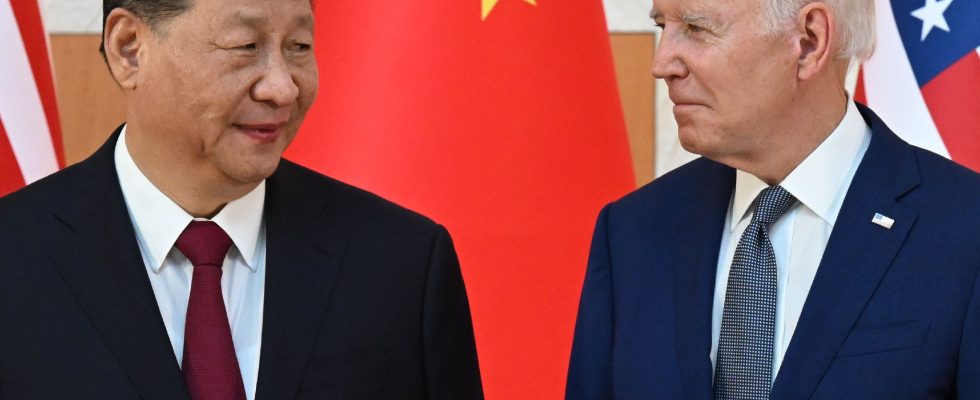The Chinese lead in the field of artificial intelligence seemed irresistible in 2019: China had then overtaken the United States and Japan for the number of patent applications related to AI in the world. In 2023, the situation has changed profoundly. The brutal decoupling of the American and Chinese economies initiated under the presidency of Donald Trump was amplified under that of Joe Biden. This movement, which will undoubtedly appear in the history books, is not the result of the decision of one man, but the conviction of a group of economic, political and cultural actors that the pursuit of integration, even if it were positive in the short term, would be to the detriment of the long-term interests of the United States.
It has been widely commented on in the form of Thucydides’ trap, a concept coined by Graham Allison to describe the situation in which a long-dominant power finds itself faced with the emergence of a new rival power. In this decoupling, if the Trump administration had handled customs duties on goods and the closing of the market to certain players (ZTE and Huawei in the lead), Biden chose to control exports of technological products, in particular semiconductors. , and to prohibit its citizens from working for a number of Chinese entities through a decree issued in October 2022.
A few weeks ago, Biden said he wanted to further tighten these bans to include all the latest generation chips, those necessary for training artificial intelligence models. The current rule has two limitations. The first concerns the individual computing power that the chip can have. The second relates to the speed at which chips can communicate with each other, which is crucial in complex artificial intelligence systems such as ChatGPT, which require thousands of chips to be connected.
The H800 chip that Nvidia created especially for the Chinese market has as much computing power as those sold in the rest of the world, but its chip-to-chip swap speeds are limited. These components are prized by Chinese tech giants. Tencent announced its intention last month to acquire a significant number to train its models. The Biden administration’s decision prompted an outcry from major US chipmakers. Qualcomm derives more than 60% of its revenue from China. Intel makes a quarter of its sales there. Nvidia gets a fifth of the revenue from it. But these pleas have little chance of deflecting the White House.
US puts pressure on China
The fanfare launch of ChatGPT and transformers also shattered the idea of a pioneering China in AI. This revolution belongs entirely to American companies, even if it was nurtured by European and Chinese brains. In 2021, a study by MacroPolo showed that of the 128 Chinese AI researchers who had published in international conferences, 54% worked in the United States, compared to 34% in China. And these American companies, under pressure from their government, are increasingly deciding to take their activities dedicated to artificial intelligence out of China. Last month, Microsoft announced that it would transfer between 20 and 40 high-level researchers from its Microsoft Research Asia center, based in Beijing, recognized as one of the best research centers in the country, to Vancouver in Canada.
The Chinese government is trying to react. The quest for extended language models like OpenAI’s GPT4 or Meta’s Llama is in full swing in the country. The e-commerce giant JD.com has just presented its ChatRhino model. A Chinese laboratory has just published a study showing that version 3.5 of Ernie, the Baidu model, would obtain better scores than GPT4 on Chinese language comprehension exercises. And the Ministry of Industry and Information Technology has unveiled its roadmap for next-generation home chips capable of supporting the development of artificial intelligence. The US move is certain to slow the pace of innovation in China, depriving local tech giants and the government of access to chips and brains. But it would be an illusion to believe that this trip will be enough to ensure victory.
* Robin Rivaton is Managing Director of Stonal and member of the Scientific Council of the Foundation for Political Innovation (Fondapol).
